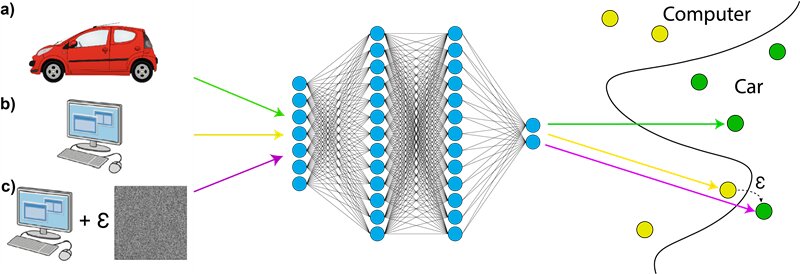Advances in technology have led to the integration of artificial intelligence (AI) algorithms in various sectors, including security applications. Image classification and identification are essential features of AI algorithms used in facial recognition, biometrics, drones, and autonomous vehicles deployed in combat surveillance and military targeting applications. However, these algorithms are vulnerable to cyberattacks. The data used to train the machine learning algorithms can be manipulated, and removing only a few pixels can result in incorrect predictions and security threats.
A recent study published in Nature Machine Intelligence by researchers from CSIRO’s Data61 and the University of Melbourne reveals that quantum technology may be the solution to protect AI algorithms from cyberattacks. Quantum computing and machine learning integration could speed up AI training and enhance robustness against cyberattacks. Dr. Muhammad Usman, the team leader of Quantum Systems at CSIRO’s Data61, said that the potential of integrating quantum computing with AI is a game-changing technology.
Quantum computing is a new field of computing that stores information as “qubits,” unlike conventional computers that use binary “bits.” A single qubit can be placed in a 0 or 1 state or represent both states simultaneously, which is called superposition. Another significant property of quantum mechanics is entanglement, which allows qubits to interact with each other at long distances without any physical connection. This feature enables quantum computers to perform calculations and code-breaking functions that could take a conventional computer thousands of years in just hours.
The Australian government launched the National Quantum Strategy on May 3, 2023, with a vision of being recognized as a leader in the global quantum industry by 2030. Quantum technologies are expected to create an Australian quantum industry worth $6B by 2045, according to the strategy. The Quantum Future Science Platform was established to develop world-leading technologies, and a new program will soon be accepting students to become the next generation of quantum technology specialists.
As more industries, including transport, defense, and banking, incorporate AI, security will be paramount. Quantum technology could help ensure that AI-powered technologies are resilient to attacks and possibly provide a competitive advantage for early adopters. However, Usman cautions that quantum computers could also generate powerful cyberattacks. Rapid advancements in quantum hardware and software and more sophisticated error mitigation strategies are coming, and quantum computers of the near future should enable quantum machine learning algorithms to start demonstrating advantages. The integration of quantum computing and machine learning is an exciting research direction that could have significant socio-economic and security implications for Australia.


Leave a Reply